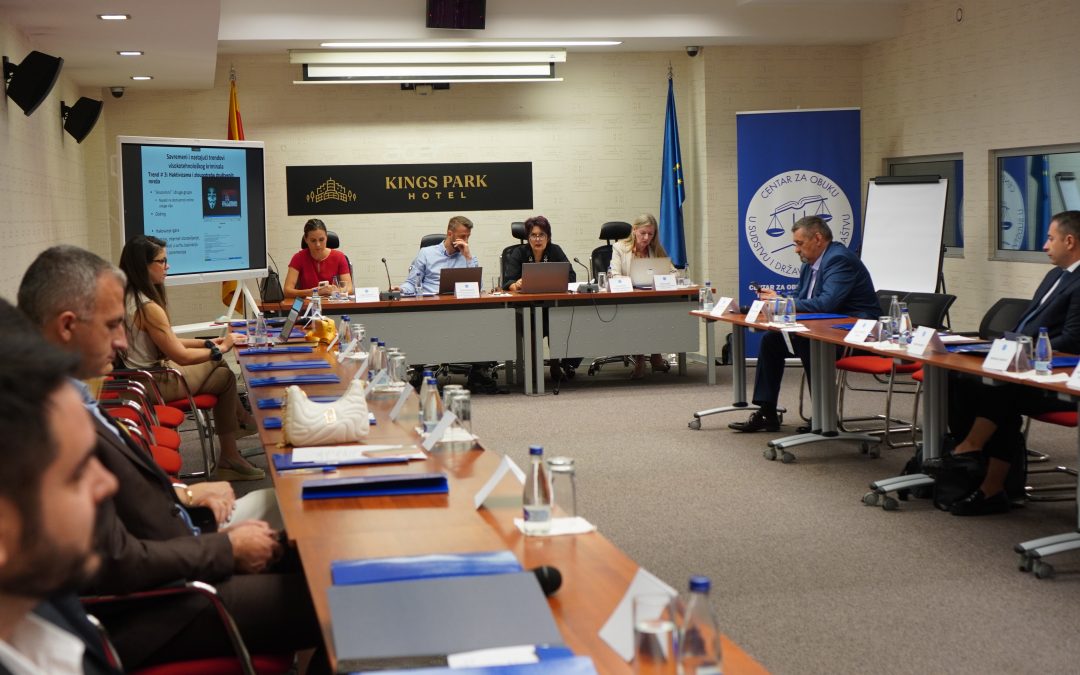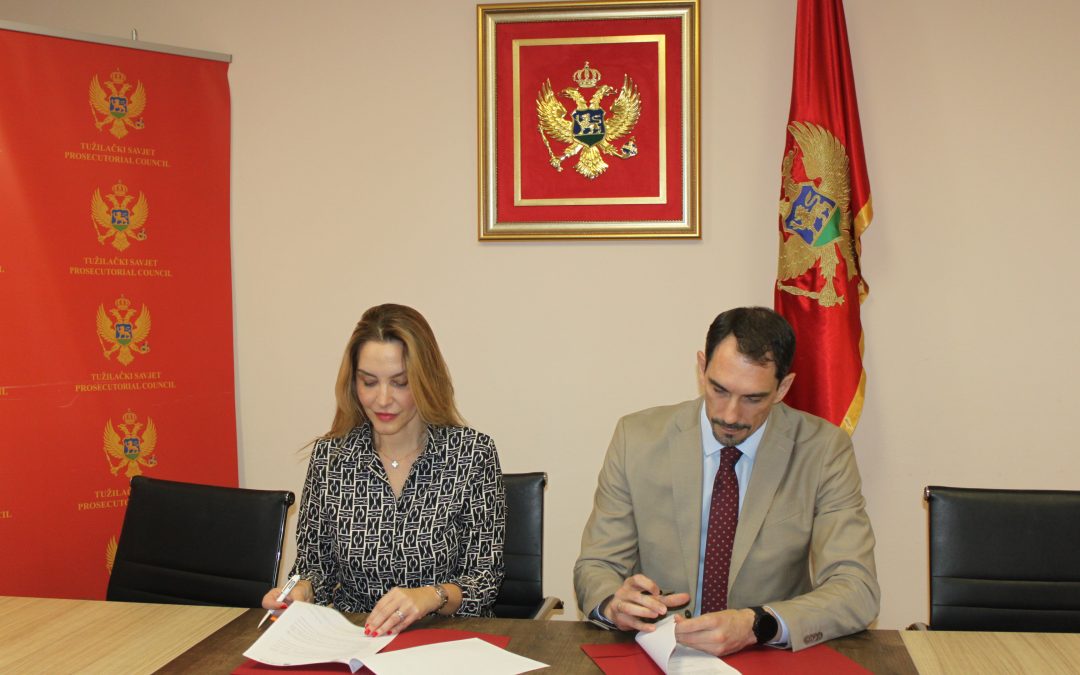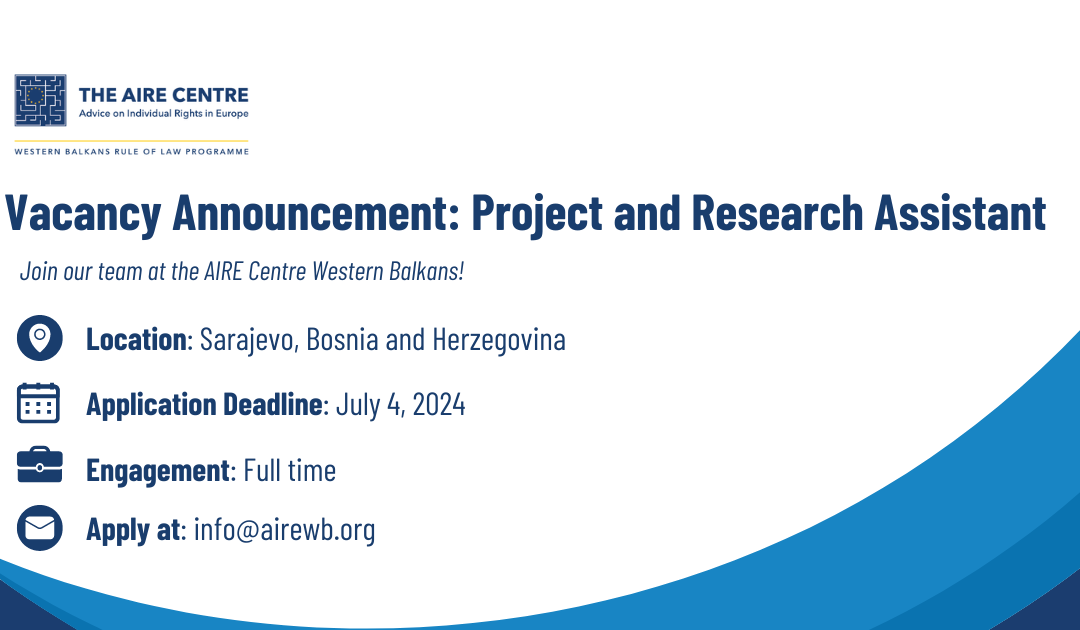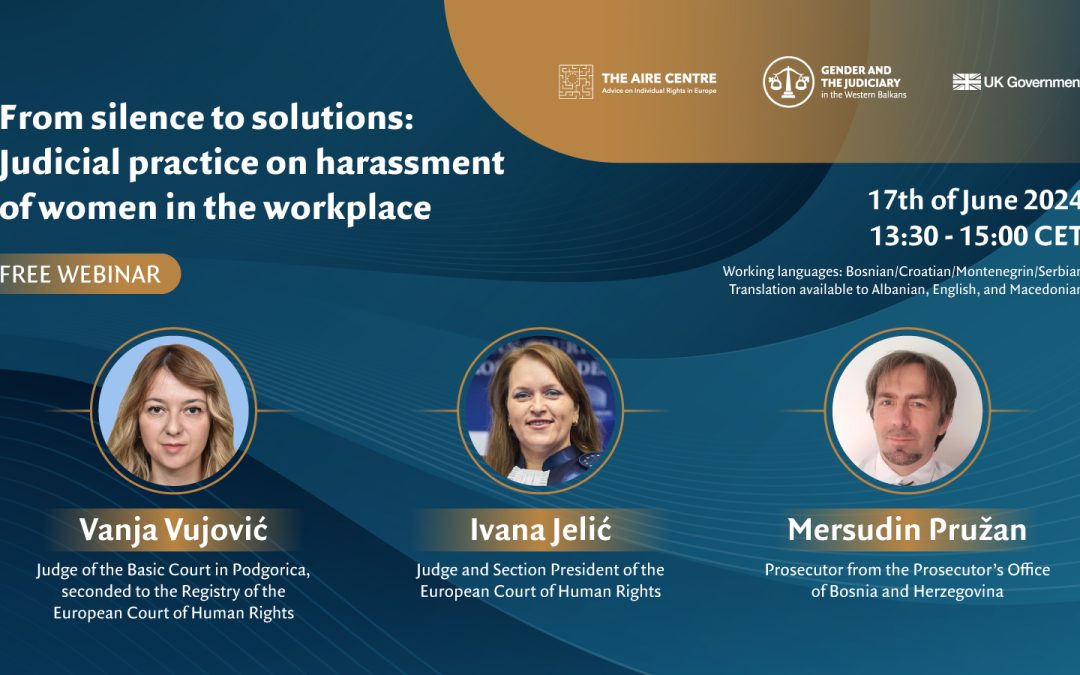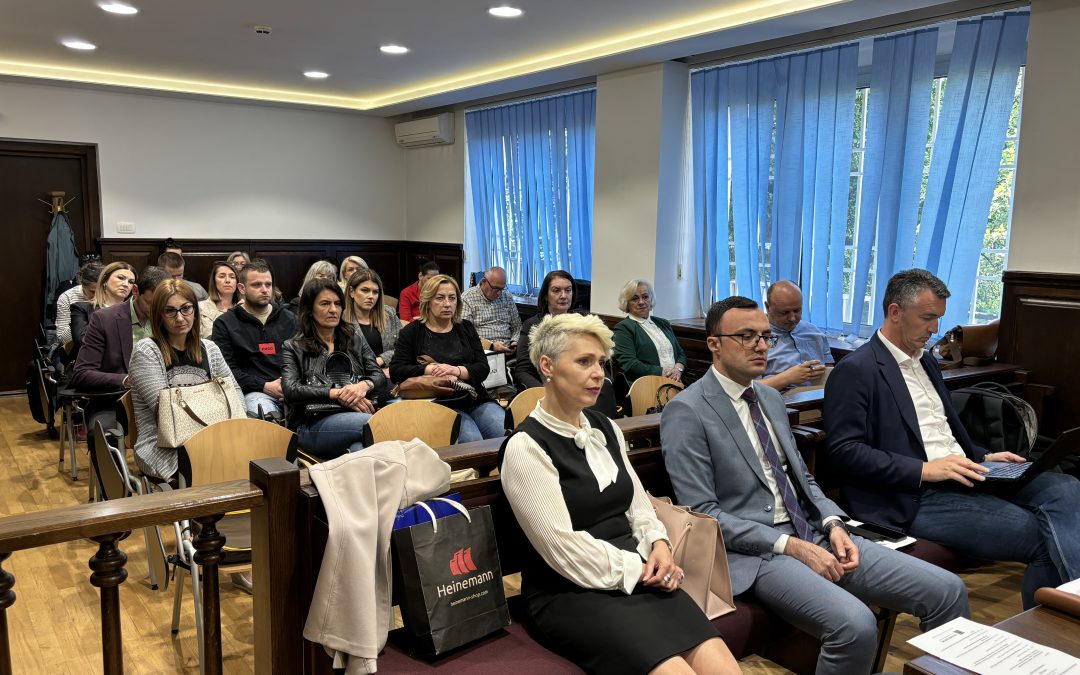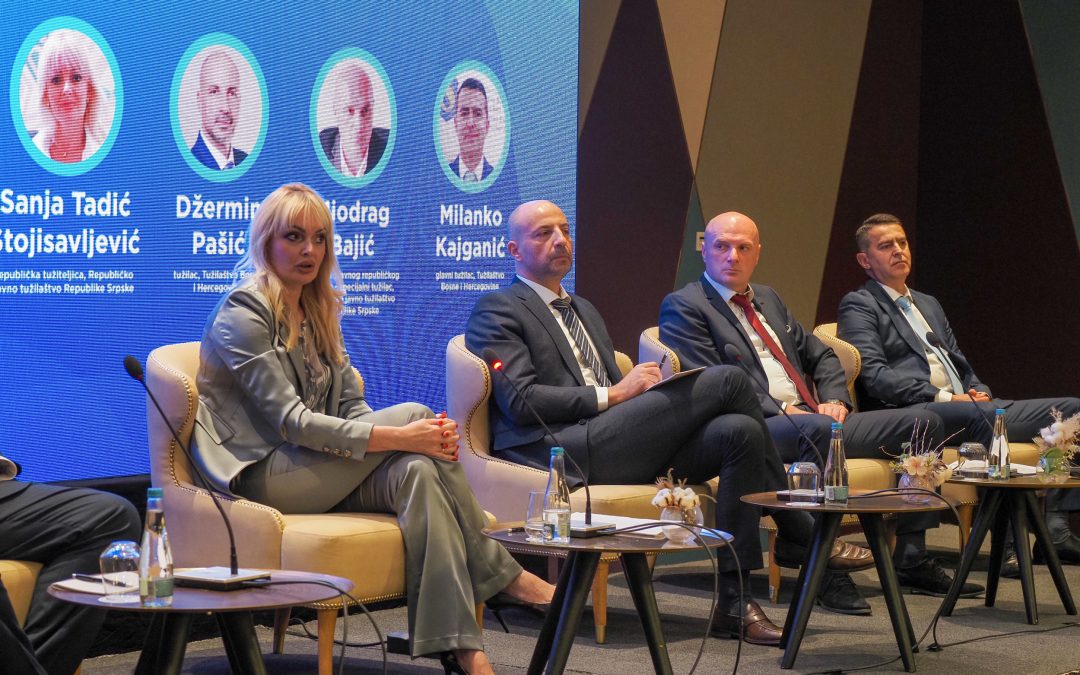As we are counting down the days until highly anticipated Second Gender Equality and the Western Balkans Judicial Forum, taking place on 2nd and 3rd of June in Belgrade, we had the privilege of interviewing Mirjana Popović, a judge at the Appellate Court of Montenegro and the president of the Association of Women Judges of Montenegro. In this interview, we delve into the critical issues surrounding gender-based discrimination and violence and underlying causes for such low reporting rates, discuss the root cause of these crimes embedded in socially imposed stereotypes, and explore the role of the justice system in Montenegro and the Western Balkans in tackling these problems, whilst ensuring better access to justice for the most vulnerable and marginalised individuals.
In your opinion, what are the most significant issues Montenegro is facing in addressing gender-based violence, and how can the justice system effectively contribute to dismantling these obstacles?
Mirjana Popović: I believe that we are all well aware of the devastating number of victims of gender-based violence, which is particularly affecting women and members of the LGBTIQ+ community. Unfortunately, it is often the most poverty-stricken and marginalised individuals, for instance, women from minority groups such as Roma women, and members of the LGBTIQ+ community, who bear the majority of the burden of this violence. Recent research conducted by the United Nations Development Program and the Ministry of Human and Minority Rights of Montenegro found that around 42% of women in Montenegro, or in other words — nearly every other woman has experienced some form of violence from their husbands or partners. These statistics are deeply concerning.
Victims of gender-based violence, unfortunately, often suffer in silence within the confines of their homes, as very few decide to report the violence to the authorities. This highlights the unacceptable marginalisation of the issue within our community. Victims of gender-based violence decide not to report the violence due to various reasons, including financial dependence on the perpetrator or a widespread lack of trust in institutional responses.
The lack of trust in institutions poses a significant challenge in our fight against gender-based violence, and I believe and strongly recognise that it is in this area that the judiciary can and must play a pivotal role. While having necessary laws in place to prohibit all forms of gender-based violence is crucial, the effective enforcement of these laws and the presence of strong, professional institutions dedicated to protecting individuals from such violence is paramount.
In this regard, I strongly believe that judges have an obligation to ensure that mentality, customs, religion, tradition, and so-called “honour” should never serve as explanation or justifications for any act of gender-based violence. By doing so, we can prevent the perpetuation of harmful stereotypes during the adjudication of these criminal acts and consequently, instil public trust in the judicial system.
Furthermore, during trials concerning gender-based violence, the courts must prioritise the safety and well-being of the victims as the foremost goal. By placing the victim at the centre of the criminal proceedings and treating them with compassion, respect, and appropriate care, we demonstrate our understanding of their pivotal role in the process.
These are among the reasons why I wholeheartedly support the adoption of the Guidelines for a gender-responsive approach to adjudication in cases of gender-based violence. The Association of Women Judges of Montenegro will devote all available resources to this goal as it represents one of the pathways to address the challenges we face in combating gender-based violence, fulfilling our legal and moral obligations.
How can we promote awareness and address gender stereotyping present in the judicial system in some cases?
Mirjana Popović: Thank you for this question, as it builds upon the previous one. It is crucial to emphasise that violence against women not only affects individual victims but also has wider implications for society as a whole, because violence against women is a form of discrimination. We must repeat this whenever possible, in order to raise social awareness on this matter.
Violence against women is one of the crucial social mechanisms by which women are forced into a subordinate position in relation to men. Therefore, the state has a responsibility to prevent violence against women, and when it does occur, the state, or in other words its institutions, are obligated to protect victims by consistently and transparently implementing laws and international standards and prosecuting the perpetrators.
Extensive research and analysis at the international level have confirmed that women face various barriers in accessing justice, one of which is the existence of gender stereotypes, socially imposed biases, and preconceived notions held by judicial actors. These barriers can lead to the underestimation of the seriousness of violence against women and in turn can result in low reporting rates.
The judiciary is obliged to adhere to the provisions of the Convention on preventing and combating violence against women and domestic violence (Istanbul Convention) and the General Recommendations of the Convention on the Elimination of All Forms of Discrimination Against Women (CEDAW) Committee No. 33., which requires mandatory training and awareness programs not only for judges but also for all judicial staff of Montenegro and beyond, aimed at eliminating gender stereotypes and incorporating a gender perspective into all aspects of the judicial system. Additionally, the judiciary must establish a framework that ensures judges expressing such unacceptable attitudes face appropriate disciplinary measures.
Discrimination based on sex is embedded in various aspects of society, ranging from public all the way to private life of women. How can we empower women and marginalised individuals, and what is necessary to truly ignite a much-needed wider societal change concerning this problem?
Mirjana Popović: I strongly believe that education plays a pivotal role as the primary and most crucial step towards achieving social equality. It is vital to actively promote diversity and equality while raising awareness among women and the general public about the fundamental rights of women, which are derived from United Nations (UN) and European Union (EU) legal documents. In order to foster a more inclusive society, it is necessary to introduce a gender component into the curriculum of primary and secondary schools. Similarly, in the context of the judiciary, it is of utmost importance to consistently adhere to international instruments that safeguard gender equality, with a particular focus on protecting women’s human rights.
Additionally, I believe that public policy is considered strong only when it efficiently and effectively solves problems, which is why it must aim to address the most pivotal topics, such as economic empowerment of women, prevention of domestic violence and increasing social involvement of women.
The second Gender Equality and the Western Balkans judicial forum, organised by the AIRE Centre with the support of the Government of the United Kingdom, aims to tackle the question of how the judiciary can address various types of gender inequalities in the Western Balkans. This high-profile event will bring together key judicial actors from region and beyond, including representatives from European Court of Human Rights, representatives from important regional judicial and other state institutions, academics, and NGOs.

